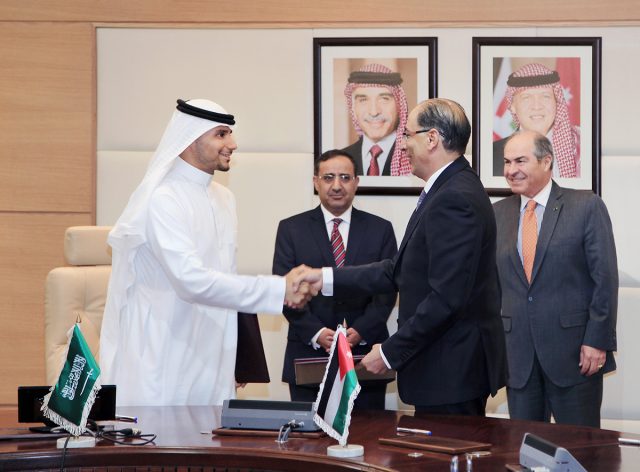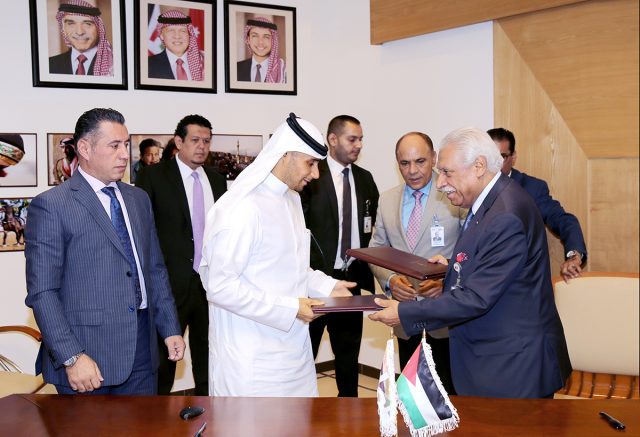KBW Investments (KBW) has signed two historic PPP and BOT agreements with respective governmental entities of the Hashemite Kingdom of Jordan to implement large-scale LED adoption countrywide and in the Greater Amman Municipality (GAM). The initiatives, spearheaded by KBW Investments founder and Chairman HRH Prince Khaled bin Alwaleed bin Talal, entail two respective LED installation agreements that are preceded by the construction of a new LED factory. Motivated to play a role in His Majesty King Abdullah II Bin Al-Hussein’s vision for the Kingdom’s adoption of alternative energy sources, KBW led by Prince Khaled, devised several schemas that were presented in 2015.
“The chief driving force behind KBW’s investment activities in Jordan are twofold: energy security and fostering the reduction of energy consumption. KBW Investments partnered with Leotek, a subsidiary of Taiwanese multibillion dollar technology manufacturer LITE-ON Group, two years ago with the ultimate goal of bringing efficient, transformative technological solutions to the region. This is Leotek’s first project of this size and scale,” said Prince Khaled remarking on the initiatives. “With the help of the KBW Investments team in Jordan, after undertaking research into PPP regulations together with Jordanian investment laws the plans were developed as joint undertakings – a first for the country. Introducing the technology itself was one challenge we faced, and another challenge was that each road’s varying conditions required specific types of luminers. The respective Jordanian governmental entities had high standards of road safety, so to simultaneously meet those requirements while properly addressing the country’s topographical diversity, we had to determine the best matches in a multitude of individual scenarios. Leotek’s technical team together with Jordanian officials performed site surveys on more than 700 kilometers that promised exceptional results, thereby cementing KBW’s decision to invest heavily. I find it inspiring that the Minister of Public Works and Housing, Sami Halaseh, Minister of Energy and Mineral Resources, Ibrahim Saif, and the Minister of Municipal Affairs, Walid Muhyddin Al Masri, were so adamant in their collective support of our projects with Jordan’s environmental health and energy security amongst their key reasons.”

HRH Prince Khaled bin Alwaleed, Chairman, KBW Investments, and Jordanian Minister of Energy and Mineral Resources, Ibrahim Saif
The two PPP and BOT agreements follow two separate Memorandums of Understanding signed by Prince Khaled in 2015. The first was signed with the former President of the Jordanian Investment Commission (JIC) Montaser Oklah Al Zoubi in May 2015 at the World Economic Forum Dead Sea. The second MoU was signed by Prince Khaled with the Jordanian Minister of Energy and Mineral Resources Ibrahim Saif in December 2015, and committed KBW to significant infrastructural investments in Jordan. The first agreement was solidified for a phase one implementation of 100,000 LED units across the Jordanian countryside and city outskirts on July 27, 2016 in the presence of Jordanian Prime Minister Hani Fawzi al-Mulki. The units are to be produced by the new LED factory employing approximately 80 people, 95 percent of whom are Jordanian. The factory, developed as a PPP and Build-Operate-Transfer (BOT) project together with two Jordanian governmental entities, the King Abdullah II Design and Development Bureau (KADDB) and the Ministry of Municipalities, represented by Cities and Villages Development Bank (CVBD), is currently under construction and has an expected completion timeframe of three months.

HRH Prince Khaled bin Alwaleed, Chairman, KBW Investments, and Aqel Biltaji, Mayor of Amman
The second agreement, with GAM, was signed by Prince Khaled and the Mayor of Amman, Aqel Biltaji, in the presence of city officials and city board members on July 28, 2016. This agreement confirms KBW’s commencement of conceptual development on how to best execute and implement Amman smart city infrastructure solutions, LED street lighting replacing another 115,000 units within GAM’s borders, and a solar pv power plant for future energy security and energy savings.

HRH Prince Khaled bin Alwaleed bin Talal and His Majesty King Abdullah II Bin Al-Hussein
By comparing the existing light infrastructure in Jordan, the energy savings that can be expected by the LED installations averages at 50 percent and in some areas reaches up to 70 percent. Calculating only 100,000 LED installations, approximately $US20 million will be saved annually; the energy expenditure savings were determined by assessment tests in Jordan that compared the various pre and post site consumption levels across the country.

HRH Prince Khaled bin Alwaleed, Chairman, KBW Investments, and Aqel Biltaji, Mayor of Amman

You must be logged in to post a comment.